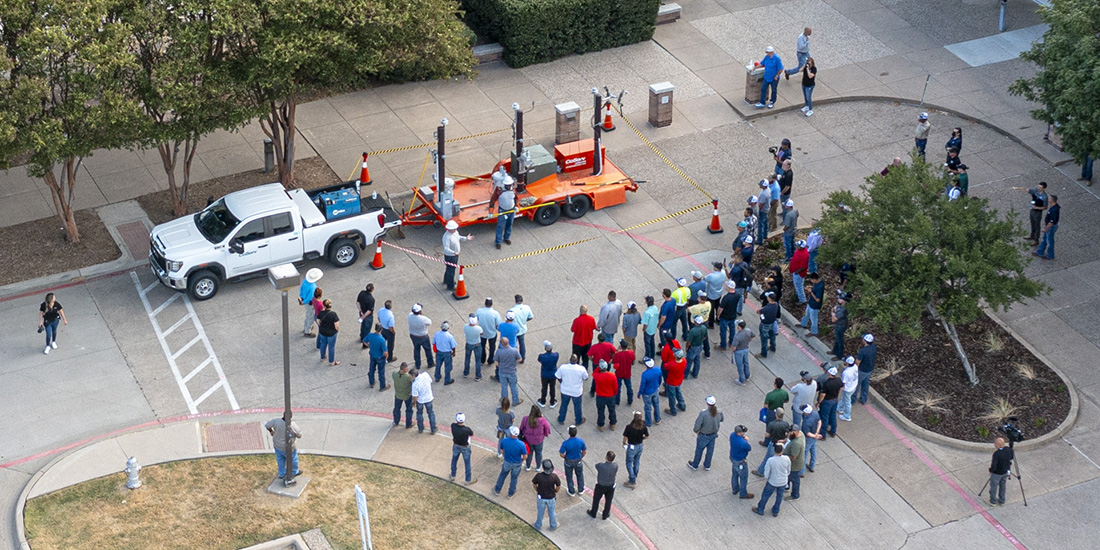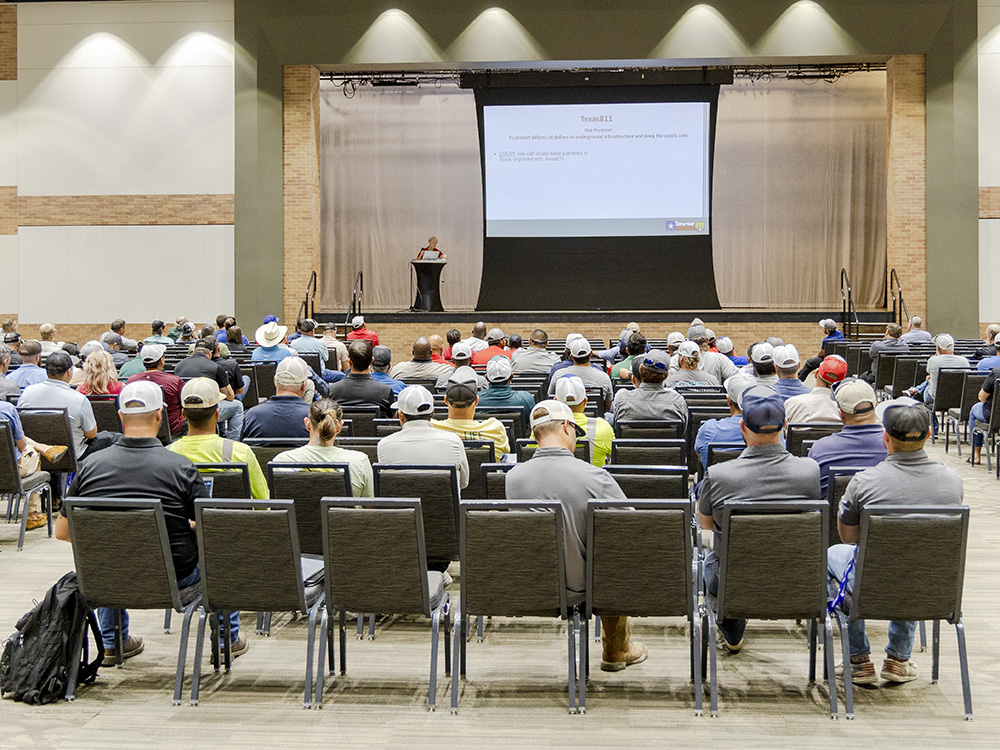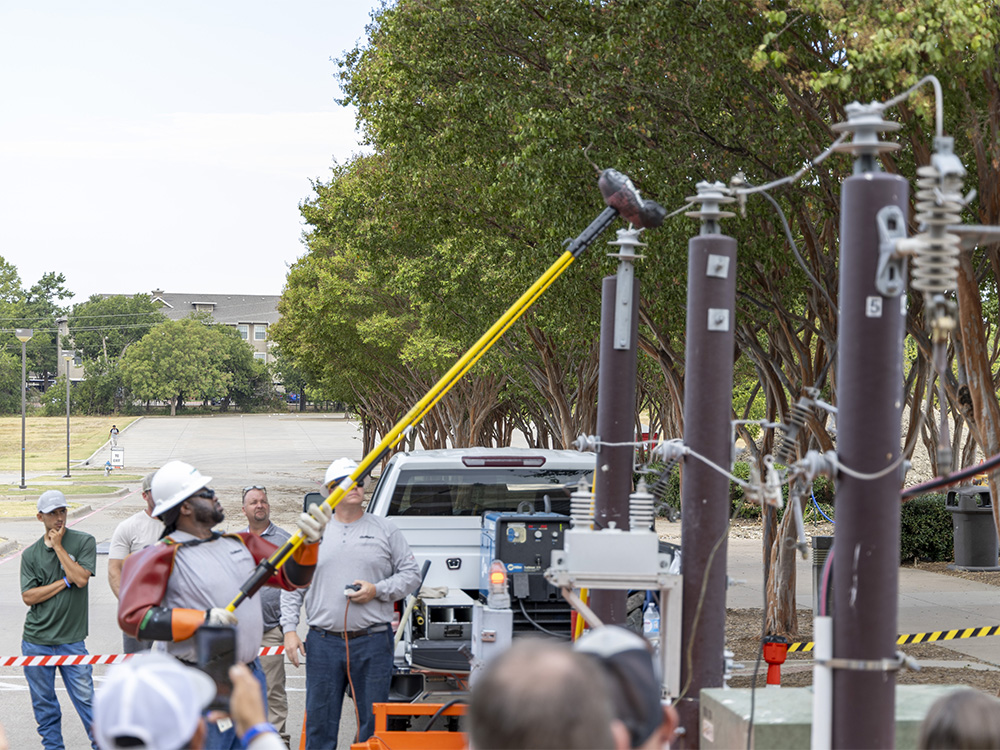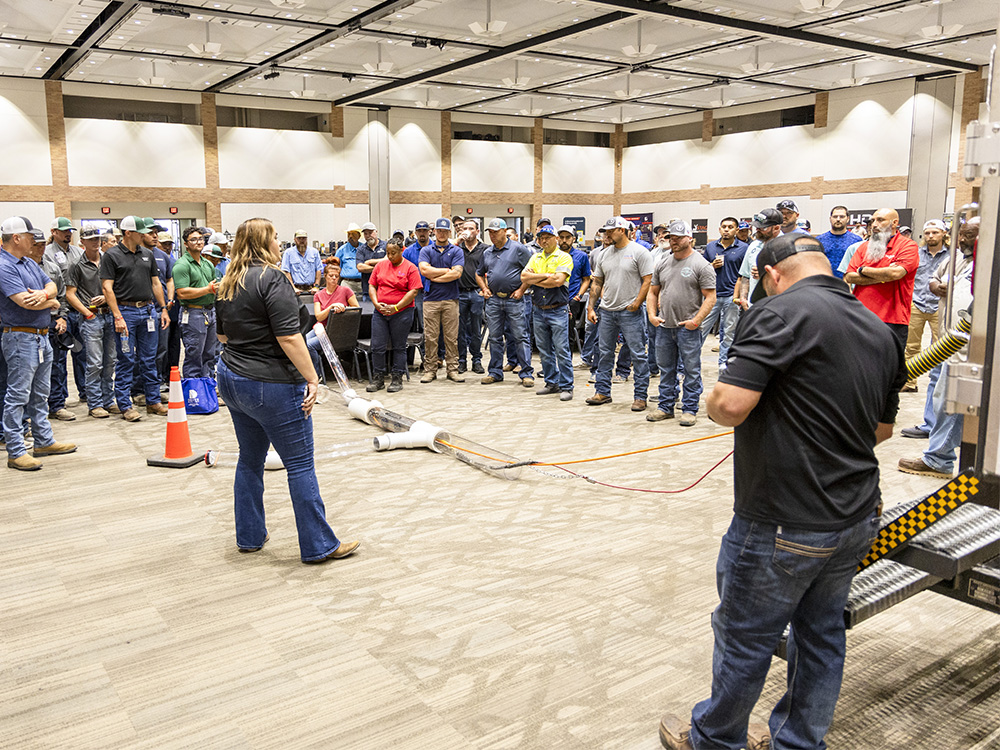Calling 811 is just the start — what it takes to protect pipelines

CoServ, the fifth-largest natural gas distribution utility in the state, goes to great lengths to protect its pipelines and educate the public about the importance of calling 811. With more than 2,400 miles of gas lines across five fast-growing counties, it’s a massive undertaking.
But protecting pipelines and other underground utilities is everyone’s responsibility, from the excavators and construction companies to the 811 dispatchers, utility location firms and homeowners.
That was the message at the Excavation Safety Day event on Aug. 29 at the Plano Event Center. Several CoServ Employees attended the event, including Rodney Hale, Director of Gas Operations.
“CoServ’s highly trained Gas Technicians have a regimented process they go through when they respond to a hit gas line; first, to keep the public safe, and second, to restore gas service as safely and quickly as possible,” Rodney said. “As this event demonstrated, these incidents can be prevented, but everyone must work together – calling 811 doesn’t magically make it safe to dig.”
The process begins with the construction firm or homeowner that needs to dig or bore. Texas 811 receives 4 million tickets a year so it’s important that the request be as detailed as possible, indicating the area where digging is imminent – not where it’s happening a month or two from now. If utility locators mark an entire property, the paint and flags could be worn away by the time digging reaches an area.
“If it’s garbage in it’s garbage out,” said Tina Sanders, Damage Prevention Manager for Texas 811. “Is the information that you’re putting on that One Call Notification going to get that locator to your work site area so they can locate the area that needs to be located? You know where you’re digging but the locators don’t.”



After the utilities are marked, the excavator should take photos of the paint and flags, that way they are covered if the markings are in the wrong place.
Doug Beck with West Texas Gas said it’s important to remember that pipeline colors don’t always indicate what’s in the pipeline. Pipelines could carry batches of different fuels, including jet fuel, raw gasoline or other products. Some are transported at subzero temperatures and can give off cryogenic burns. Others contain hydrogen chloride, which is also hazardous.
“When you put the shovel in the ground, don’t ever make an assumption on something,” Doug said. According to Tina, a large portion of the nicked or hit line damage is done by shovels making Doug’s comment even more important to remember.
It’s also important for utilities to know what lines they have in the area, so it is properly marked.
“It’s a two-way street out there. That’s why it’s so important to have communication as part of the process,” Doug said.
At CoServ, we’re committed to doing our part to prevent hit lines, but with so much construction in North Texas and so many underground utilities, it takes buy-in from everyone to dig safely and efficiently. Conferences like this play a crucial role in educating the public about the dangers.
